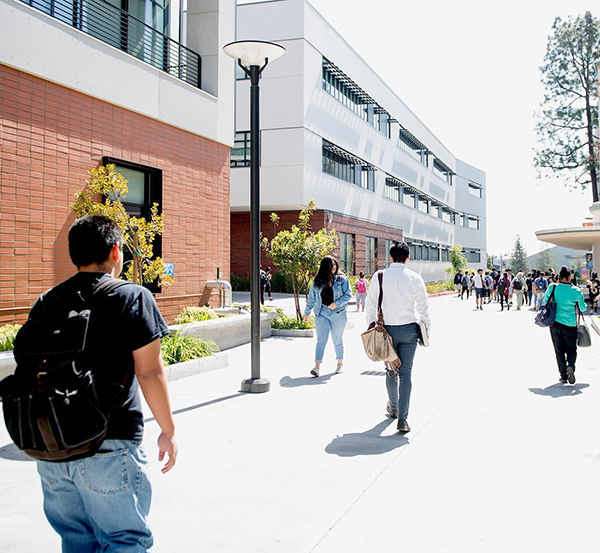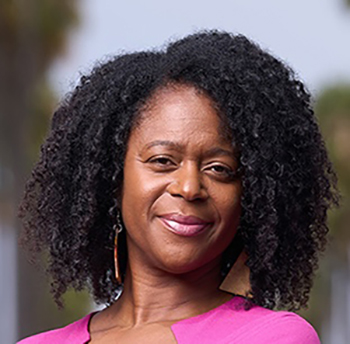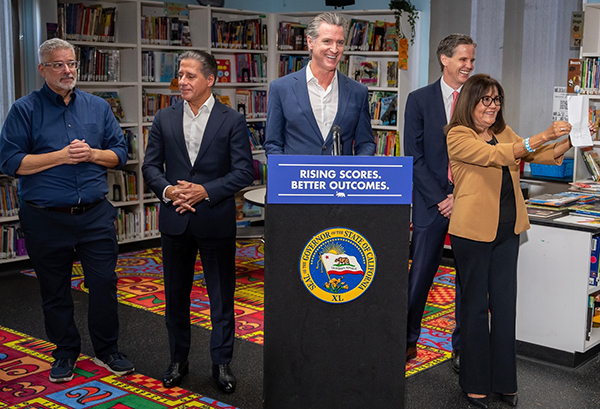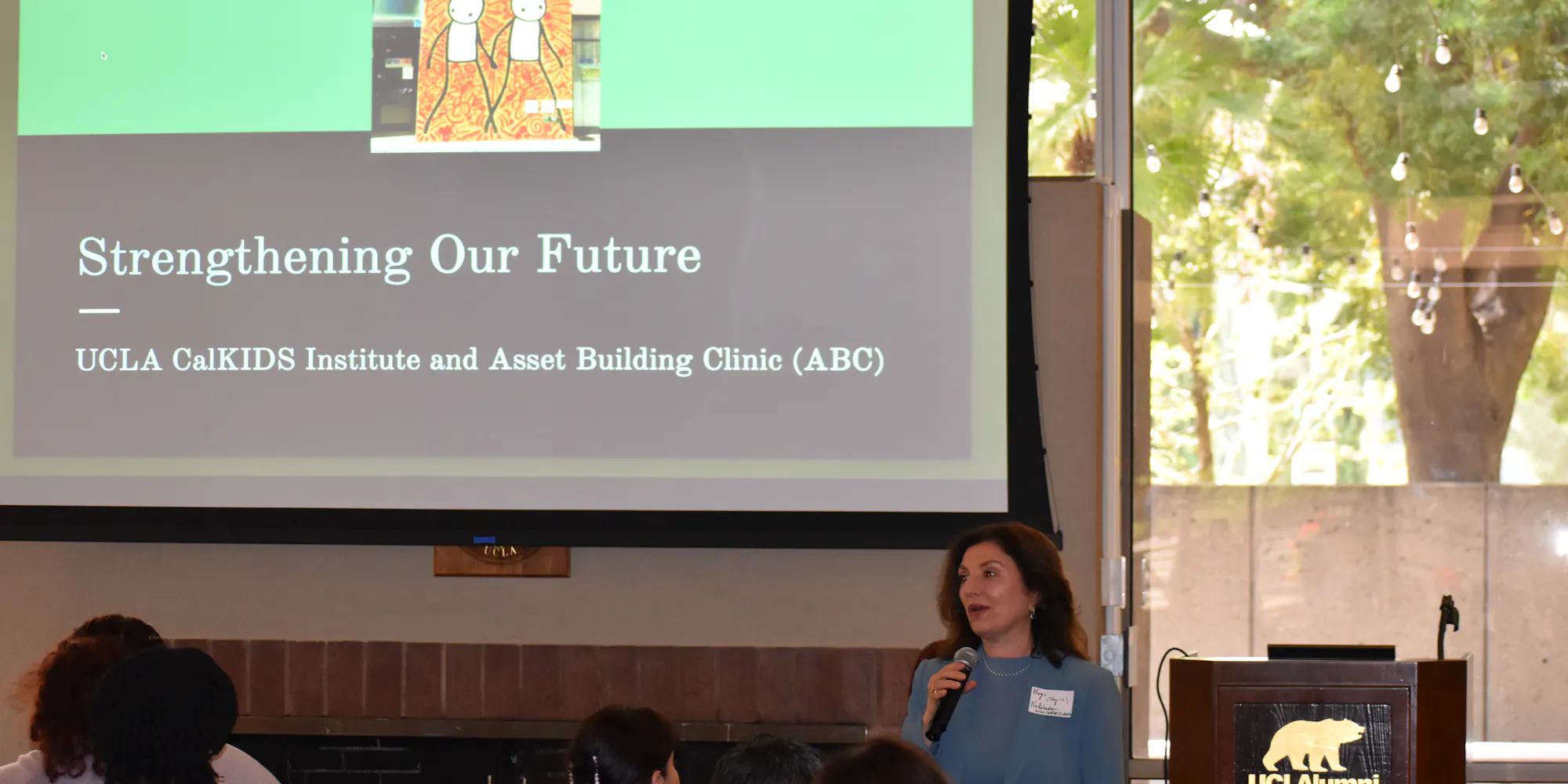Community college students receive immigration support

Students head to class at East Los Angeles College in Monterey Park. A state program, Find Your Ally, provides free immigration legal aid to the 2.1 million students enrolled in the state’s 116 community colleges.
Courtesy photo
By Selen Ozturk
Contributing Writer
SAN FRANCISCO — As immigration crackdowns continue nationwide, California is expanding access to legal aid through Find Your Ally, the first state-funded program of its kind in the nation.
Through the program, all students, staff and faculty in California’s 116 community colleges can access free immigration legal aid, regardless of income, enrollment status or program type.
California community colleges serve more than 2.1 million students, making it the largest higher education system in the U.S. An estimated 50,000 to 70,000 of these students are undocumented, according to California Dream Act and in-state tuition application data.
Services offered through Find Your Ally include in-person and online consultations, help with Deferred Action for Childhood Arrivals (DACA) renewal and filing fees, naturalization assistance, advance parole applications, family petitions, guidance for mixed-status households navigating changing immigration laws and help in attending or funding immigration-related appointments like doctor’s visits.
Funded entirely by the state at about $10 million annually, the program remains unaffected by the ongoing federal government shutdown or California’s budget deficit, “with the caveat that depending on how the government shutdown goes, individuals that might be in the process of adjusting status or submitting applications might see a bit of a delay,” said Alonso Garcia, senior manager of equity at the Foundation for California Community Colleges, at anAmerican Community Media briefing earlier this month.
Program access continues even after a student or staff member leaves the community college system, with all case information protected under attorney-client privilege.
For potential applicants hesitating to share their information with the state, “We do not ask for a lot of information. Most of it is contact information,” Garcia said. “There are a number of firewalls, and we scrub the system within 48 hours of scheduling their consultation.
“All of the information funneled through Find Your Ally goes directly to the legal service providers. We at the state level do not get to see any of that information. It’s 100% confidential and secure and private.”
Since launching in 2019, Find Your Ally has served more than 30,000 students, including 9,000 in just the past nine months, nearly double its previous yearly average.
“Higher education can already be very difficult to navigate on its own, but when you add on top of that, immigration issues under this administration, it presents even more complex challenges,” said Yadira Gutierrez Vargas, a supervising attorney of college legal services at the Central American Resource Center (CARECEN), which provides Find Your Ally services to 12 Los Angeles-area community colleges.
DACA applications and renewals remain the most common cases, Vargas said, though renewals are declining as more clients gain permanent status or transfer to four-year universities.
She recalled one East Los Angeles College student who sought help renewing her DACA status, then later applied for advance parole to visit a sick family member abroad.
“After that, she got married to somebody with status, so we were able to assist this particular client on filing a family petition along with a green card application, which granted her conditional residence,” Vargas said.
“Their marriage was not very long … so now we’re in the process of helping her remove those conditions to her green card, and in a few months we’ll be able to assist her with naturalization application so that she can become a citizen,” she added. “She is now transferred over to the CSU system, and we’ve been able to assist in each part of her case over all of these years. I think it’s very reflective of what the program has been able to do.”
A Pasadena City College student learned during a consultation that he qualified for Special Immigrant Juvenile (SIJ) Status, a green card pathway for those under 21 who have been abused, abandoned or neglected by a parent.
Soon after CARECEN helped him file the status paperwork in state court, the student had to evacuate Pasadena during the Eaton fire that burned through the city early last January.
Throughout this, CARECEN was able to help the student stay enrolled in school by connecting him to community aid relief funds, and finally help him gain SIJ status approval.
“I was a student very, very, many years ago, and it would have been such a blessing to have access to something like this back then,” Vargas said. “I remember being in my teens, trying to help my mom and my grandmother read through notices and fill out documents and going to various people that had sort of gone through the process, because we just didn’t have that information … We could have asked questions of somebody reliable, instead of having a host of different opinions that were a lot of times incorrect.”
“My greatest concern is that the actions by the administration are causing a chilling effect, and so a lot of people, even when they are eligible for forms of relief, are very afraid to move forward,” she continued, encouraging Californians eligible for Find Your Ally to “meet with an attorney to weigh their their risks.”
“Hopefully, they can continue to move forward, because cases are still being granted,” Vargas added. “We are still getting approvals. The analysis may just take a little bit longer, and the conversations about the risks may take a little longer.”
Community college students, staff and faculty can access multilingual resources and legal aid in multiple languages at findyourally.com.
Immigration-related webinars about legal rights, accessing financial aid, paying taxes, business ownership and mental health support are also available on the Find Your Ally YouTube page.
Selen Ozturk is a reporter for American Community Media.





